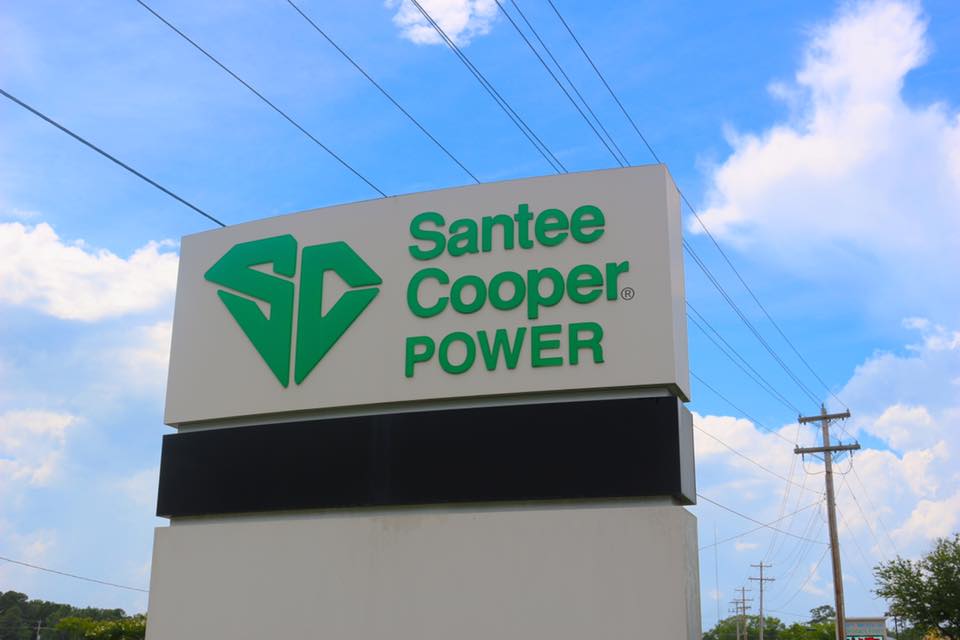Four entities – including a trio of “Fortune 200 energy companies” – have reportedly submitted letters of interest to purchase “some or all” of Santee Cooper, the government-owned power company at the heart of a spectacularly failed command economic intervention in the South Carolina energy industry.
We’re referring of course to #NukeGate … the still-cascading scandal that has spawned a flood of lawsuits and a pair of criminal investigations.
According to reporter Avery Wilks of The (Columbia, S.C.) State newspaper, “two sources familiar with the negotiations” told him governor Henry McMaster received letters of interest regarding the sale – or partial sale – of the state-owned energy company prior to an October 1 deadline.
Hmmm … “partial sale.”
“Letters of interest …”
Seems like pretty thin language to us … especially considering none of the “interested” parties have been named.
There’s a good reason for that: McMaster and his advisors still face tremendous hurdles in their efforts to unload this toxic “asset.” In fact, we believe the task is insurmountable – barring a massive taxpayer bailout, anyway.
In addition to its massive $7.7 billion debt load, Santee Cooper’s future finances are very much in question. For starters, any entity interested in purchasing the utility would be forced to borrow money at higher rates than those currently available to the utility – effectively lowering the value of the asset.
As a government agency, Santee Cooper benefits from municipal bonds – enabling it to issue debt at below market rates. Assuming the utility were sold to a private sector provider, those competitive advantages would disappear – leading some to label the purchase of the utility as “non-economic.”
Furthermore, Santee Cooper has been able to raise rates on consumers with impunity for the last decade – something it will no longer be able to do in the aftermath of the #NukeGate debacle.
So just what is McMaster thinking? Is he planning to sell Santee Cooper’s profitable components and unload its debt on taxpayers?
Or is all of this just posturing?
To recap: Santee Cooper and its private sector partner, publicly traded power company SCANA, spent the past decade collaborating on a massive expansion of the V.C. Summer nuclear power station in Jenkinsville, S.C. This project was supposed to have produced a pair of next-generation AP1000 pressurized water reactors at a cost of $9.8 billion. The money was spent, but the reactors were never finished. Or even half-finished. Not only that, estimates indicate they could cost another $9-16 billion to complete.
(Click to view)

(Via: Santee Cooper)
Unable to pony up its share of that amount, Santee Cooper pulled the plug on the deal on July 31 … killing an estimated 5,600 jobs, squandering billions of dollars in investment (including more than $2 billion raised through rate increases on consumers), throwing the state’s energy future into chaos and costing the government utility its credit rating.
Documents released last month revealed Santee Cooper and SCANA executives knew over a year-and-a-half ago the project was doomed – yet continued to raise rates on consumers anyway.
Which reminds us, Santee Cooper’s CEO was allowed to resign shortly after the V.C. Summer project went belly-up – and is in line to receive a $16 million golden parachute.
Add that to McMaster’s tab, right?
Like the governor – a wholly owned subsidiary of the state’s government-run power industry – South Carolina lawmakers who have been badly exposed by this scandal are doing their best to whitewash their culpability in this matter.
We’ve been exposing those efforts from the very beginning – pointing out how these machinations were doomed to fail considering how many of the Senators and representatives currently “investigating” this disaster were directly responsible for bringing it about.
Same with former S.C. governor Mark Sanford …
Do we believe the utility should be sold? Yes … but it’s going to have to be part of a fundamental free market overhaul of the state’s energy industry.
“We believe Santee Cooper should be unloaded as soon as possible,” this news site wrote last month. “Our concern? That South Carolina’s government has made such a mess of its power company no one is going to want to purchase it.”
Had Santee Cooper been unloaded back in 2008 when we initially suggested it should be sold, the utility would have netted billions for taxpayers.
“(It) would be fantastic if the state could offload it,” one financial analyst told us, but they quickly added that the presence of so many aggravating factors “does not bode well for the terms of the sale.”
“It’s a government-run utility. Utilities are inefficient. Governments are inefficient. A government-run utility is a nightmare,” the analyst added, citing “decades and decades of corporate decision making divorced from market discipline.”
Sources familiar with the negotiations have told us that McMaster has met with numerous companies, all of whom have told him they would only consider purchasing the utility if the state assumed its debt.
***
WANNA SOUND OFF?
Got something you’d like to say in response to one of our stories? Please feel free to submit your own guest column or letter to the editor via-email HERE. Got a tip for us? CLICK HERE. Got a technical question? CLICK HERE. Want to support what we’re doing? SUBSCRIBE HERE.
Banner via S.C. Governor
